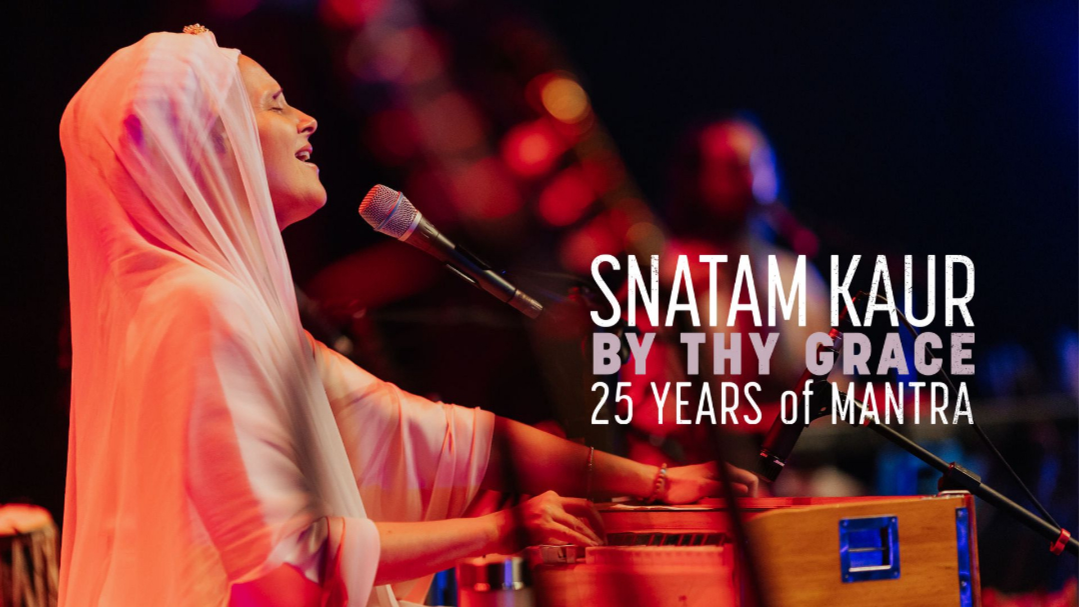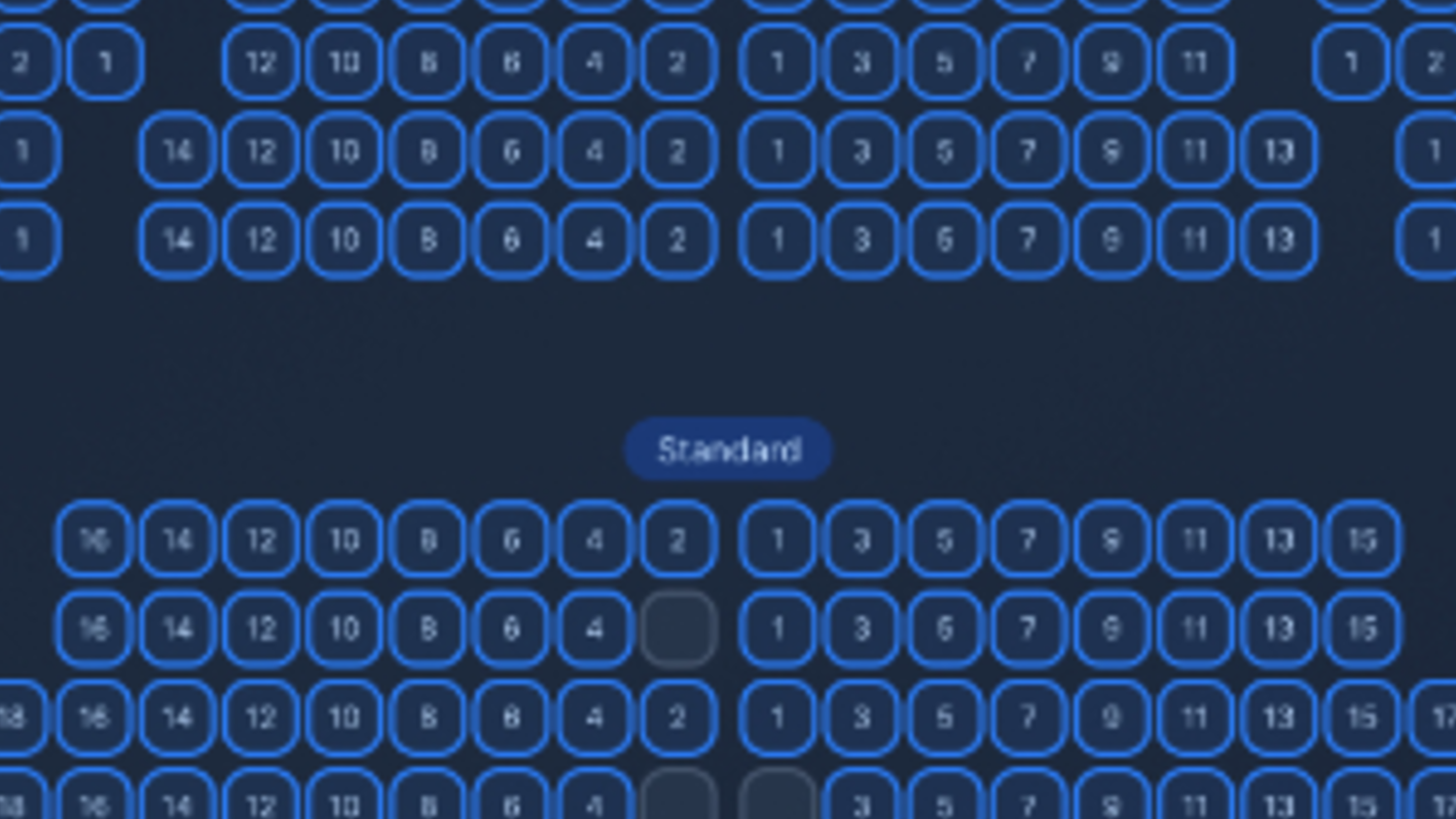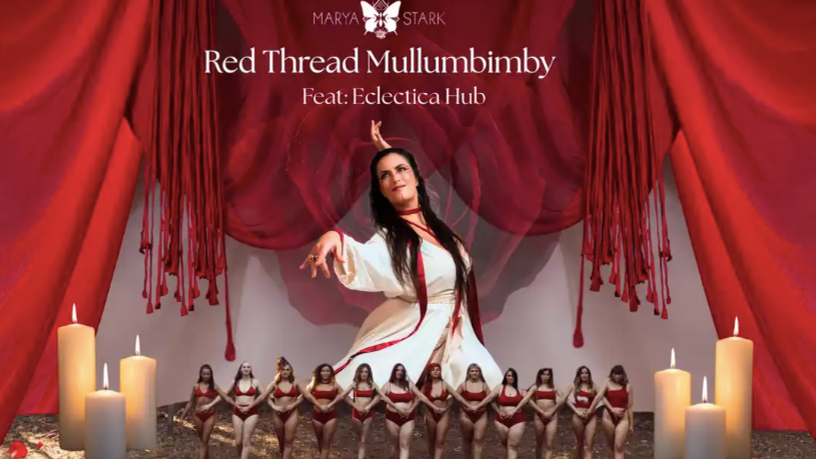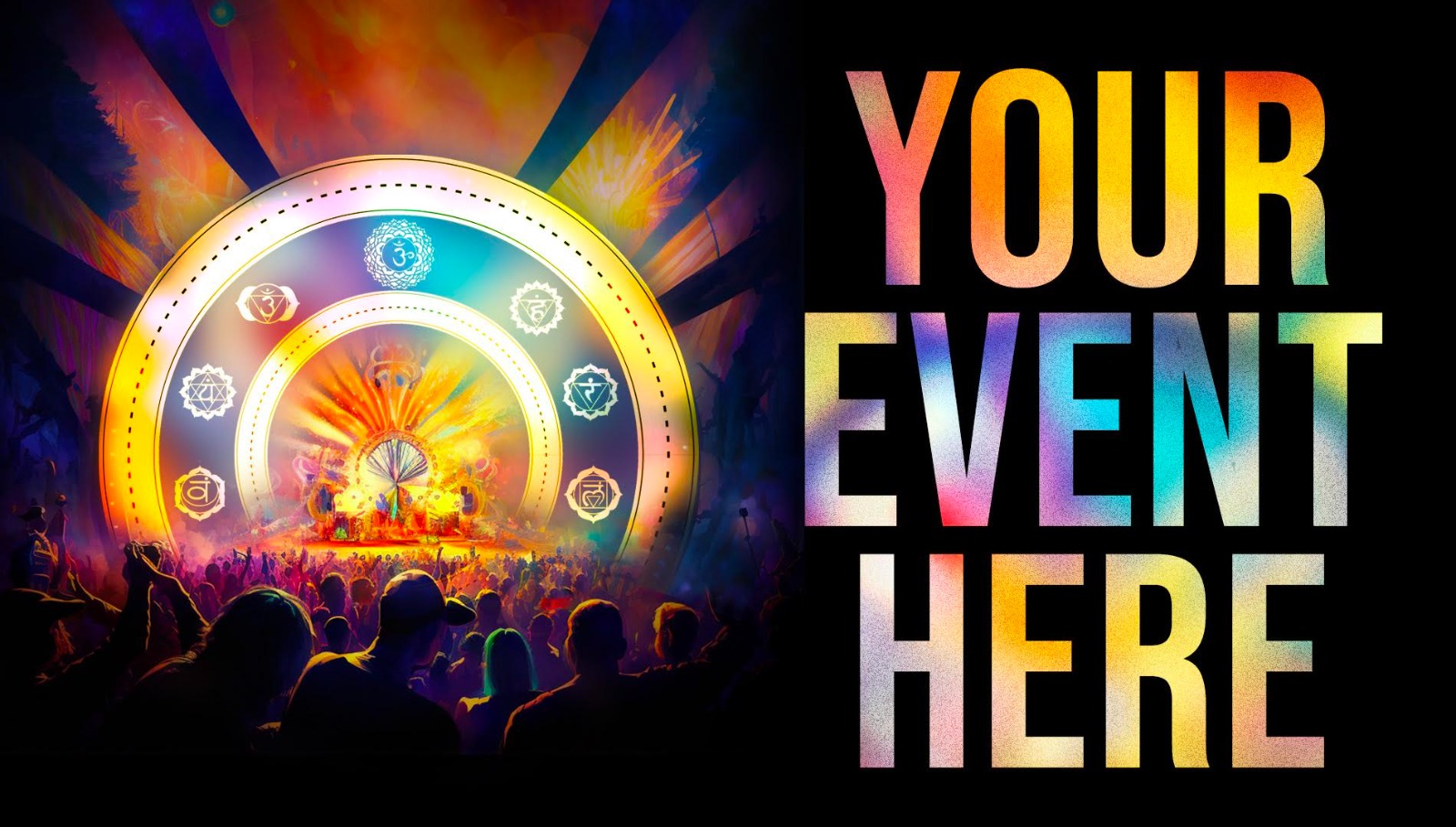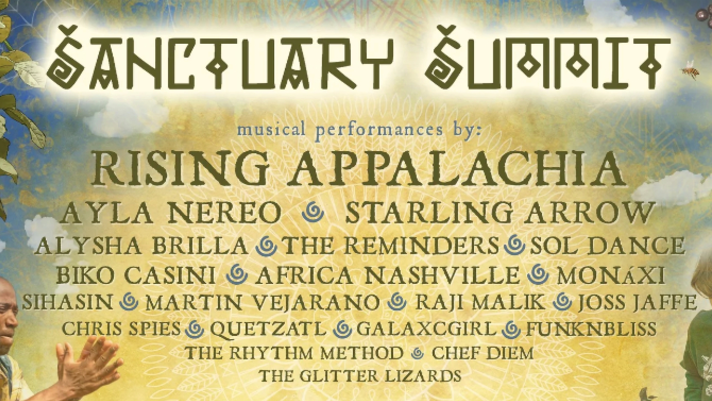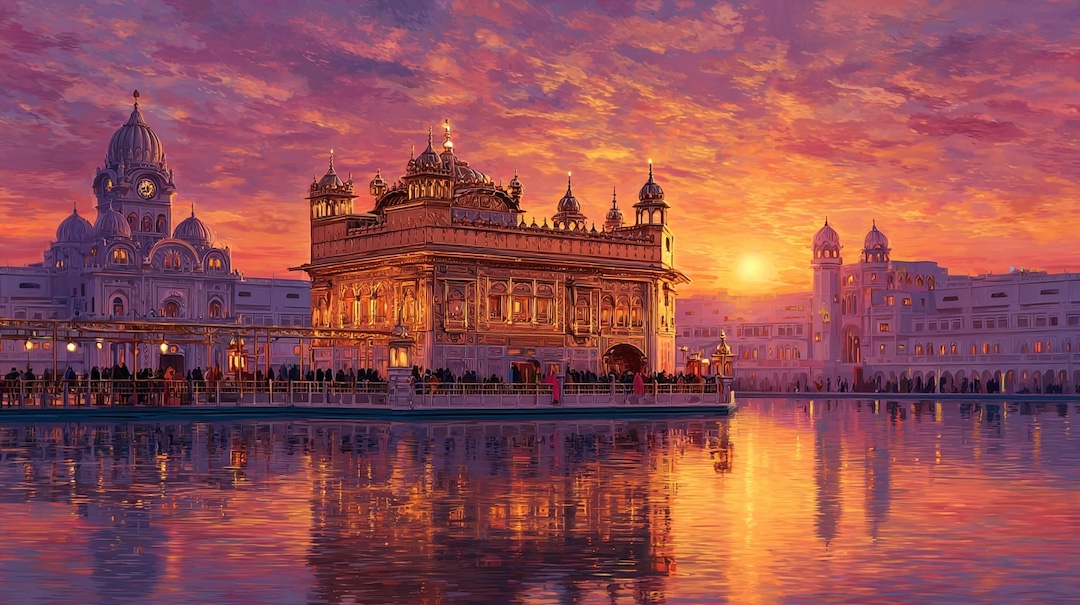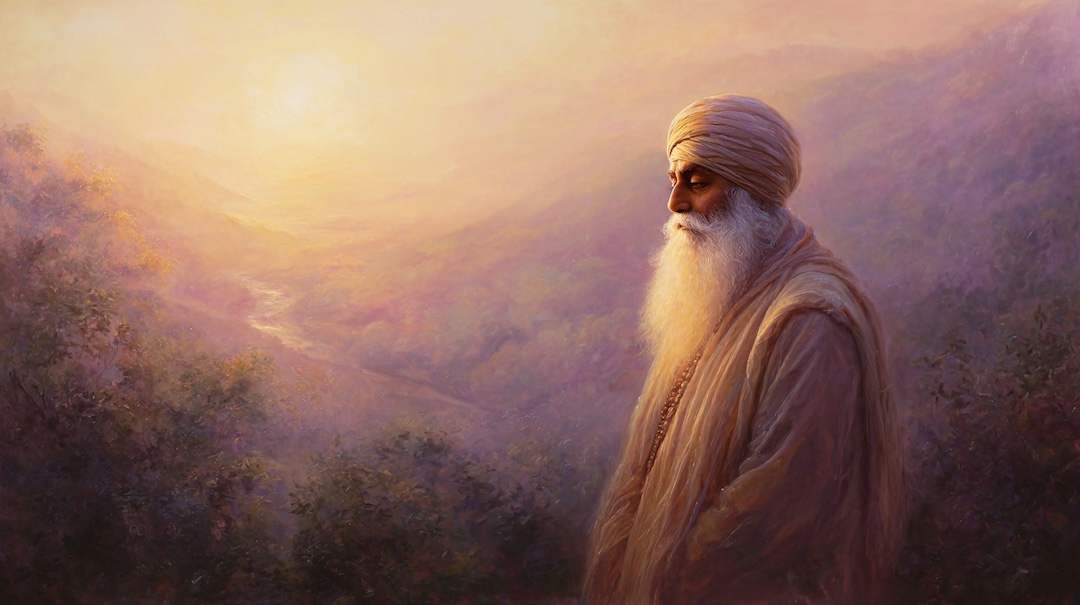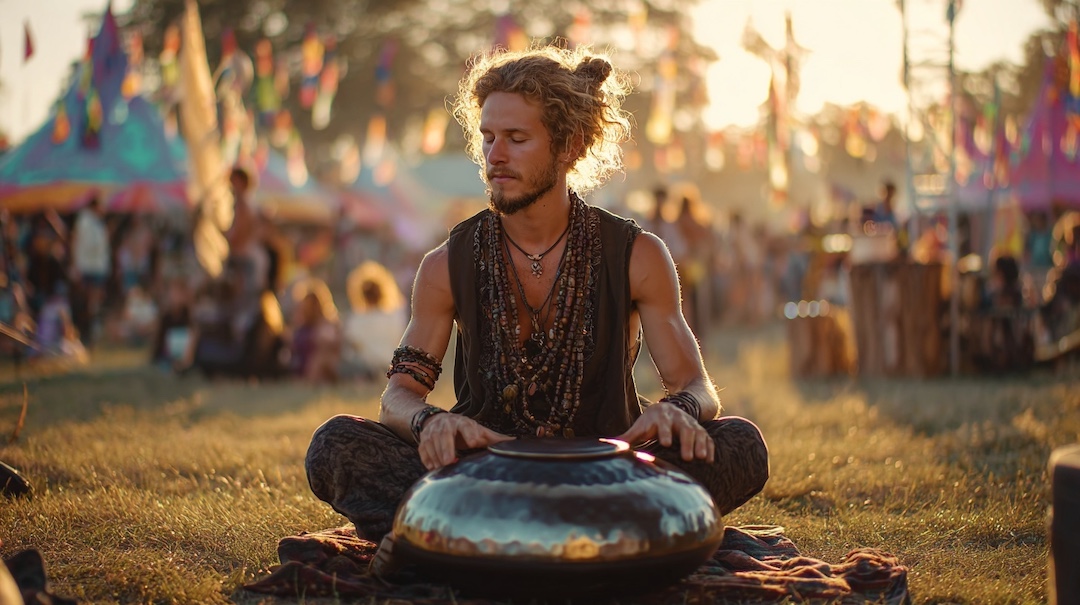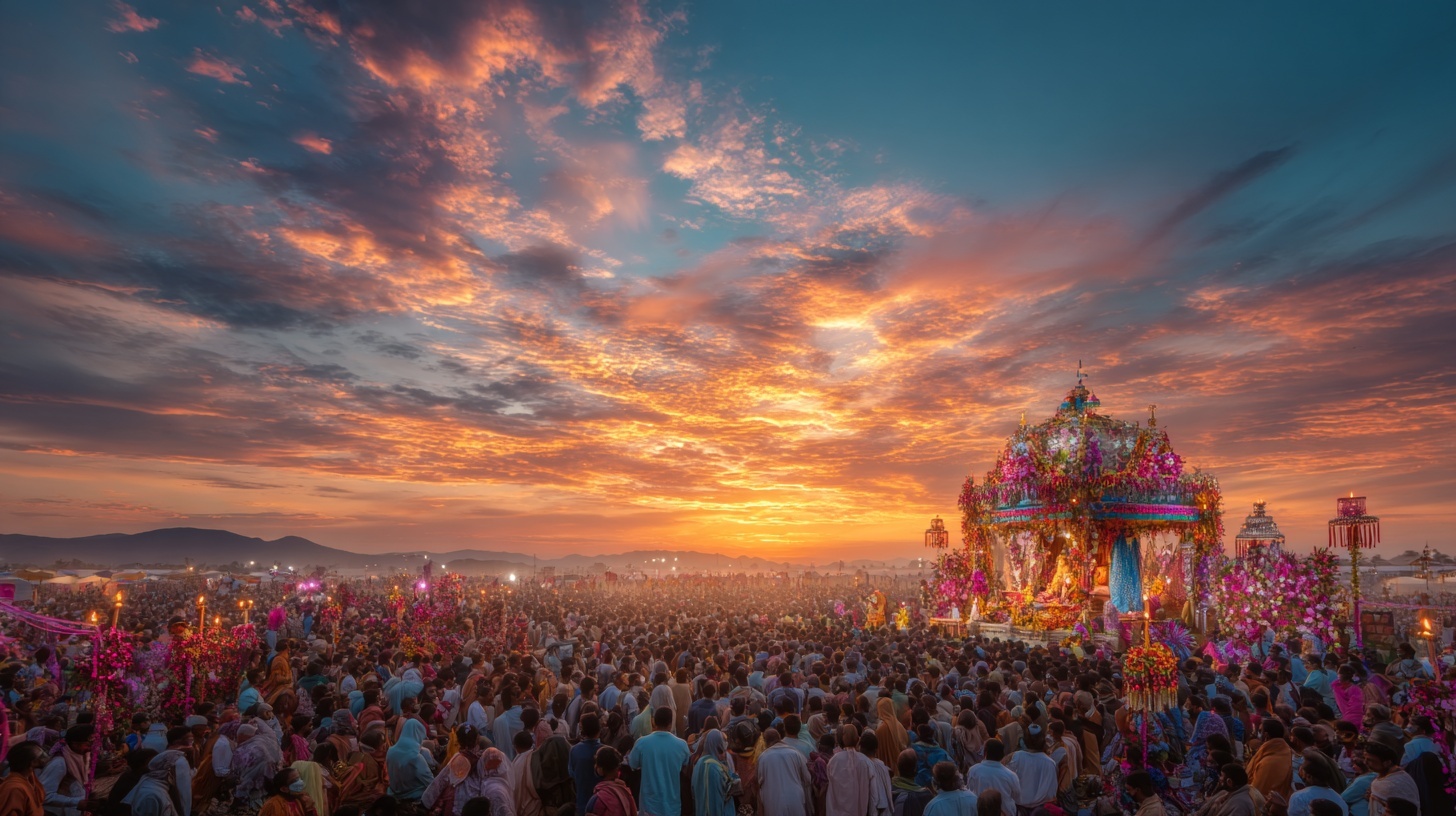
A global chorus of love and devotion
Across the world, a new kind of festival has quietly taken root — one that doesn’t revolve around headliners or fame, but around presence, devotion, and oneness. At the center of this blossoming is Bhakti, the Sanskrit word for devotion through love.
What began as small circles of chanting yogis in living rooms and yoga studios has evolved into global gatherings of the heart, where thousands come together to sing the divine name. From the sands of Joshua Tree to the forests of Europe and the ashrams of India, Bhakti festivals have become the pulse of a movement — one that merges music, meditation, and service into a living expression of love.
The birth of Bhakti festivals in the West
In the early 2000s, a wave of devotional music swept across the Western spiritual landscape. Long before it filled concert halls, kirtan — the ancient call-and-response chanting of divine names — was carried by a handful of pioneering artists whose sincerity lit the path for millions.
Names like Krishna Das, Snatam Kaur, Deva Premal & Miten, and Jai Uttal became synonymous with sacred sound. Each carried the essence of Bhakti in their own unique way — Krishna Das through his gravel-toned bluesy bhajans, Snatam Kaur through angelic Gurmukhi mantras, Deva and Miten through meditative intimacy, and Jai Uttal through ecstatic fusion of Indian raga and Western rhythm.
And then came Bhakti Fest. Set amid the sun-drenched expanse of Joshua Tree, California, this groundbreaking festival became the Mecca for devotional music lovers around the world. It was a living temple — blending yoga, meditation, and sacred music into a weekend of pure heart.
For many, Bhakti Fest wasn’t just an event; it was an initiation. Attendees found themselves chanting late into the night beneath desert stars, tears streaming, hearts bursting open. The desert became sacred ground, and Bhakti became the unspoken language of awakening.
From desert gatherings to a global movement
What started in a remote California oasis soon echoed worldwide. Bhakti-inspired gatherings appeared in Europe, Latin America, and Asia, creating a global tapestry of devotion. Chant artists began touring internationally, yoga studios turned into mini-temples, and livestream kirtans connected global audiences long before virtual events became the norm.
This wasn’t merely cultural exchange; it was spiritual transmission. Bhakti transcended geography, religion, and language. Whether sung in Sanskrit, Gurmukhi, or English, the essence was the same — to dissolve separation through sound.
Today, Bhakti has become a cultural force woven into the broader wellness and yoga world. Chanting is now as natural in a yoga retreat as meditation or asana. Bhakti’s essence — love expressed through devotion — has quietly reshaped how the modern world experiences spirituality: less dogma, more direct experience.
BrightStar’s journey of Seva
For over twenty years, BrightStar has been blessed to serve this movement from behind the scenes — providing the digital infrastructure that allows seekers and artists to connect, grow, and gather.
What began as a handful of events has evolved into a vast ecosystem of devotional festivals, yoga conferences, and sacred music tours across continents. BrightStar has supported thousands of organizers and helped millions of ticket buyers find their way to transformative experiences — all rooted in one simple principle: Seva, or selfless service.
While others build technology for profit, BrightStar’s foundation has always been spiritual service first, software second. Every ticket, every event, every gathering hosted on the platform carries the same vibration of community and consciousness that Bhakti Fest helped awaken in the world.
The experience of Bhakti: sound as a path to the Divine
At a Bhakti festival, something extraordinary happens. The crowd stops being a crowd. A thousand voices blend into one, and the boundary between stage and audience dissolves.
You may begin by singing softly — hesitant, shy — and before long, you find yourself swept into a current of love so vast that the concept of me disappears. It is said in India that “Bhakti melts the heart.” Nowhere is that truer than in these living mandalas of sound.
The mantras, drawn from ancient Sanskrit and Gurmukhi lineages, are not mere words; they are vibrations of awakening. When sung with sincerity, they open the heart and still the mind. The music may rise to ecstatic heights or fall into meditative stillness — but through it all runs the same current: Remembrance of the Divine within.
This is why people return to Bhakti gatherings year after year. Not for entertainment, but for homecoming.
The legacy of the pioneers
The Bhakti movement in the West was not an accident. It was seeded by lineage and nurtured by love.
GuruGanesha Singh, founder of Spirit Voyage Records and co-founder of BrightStar, played a pivotal role in building the early infrastructure that brought sacred music to global audiences. Spirit Voyage became the first major record label devoted entirely to mantra and kirtan, helping to amplify artists like Snatam Kaur — whose luminous voice carried Sikh devotional music to millions worldwide.
That same spirit of service now lives on in BrightStar — evolving from CDs and concerts into digital platforms and global event ecosystems. Where Spirit Voyage offered the music, BrightStar now offers the means for community connection. The mission has remained the same: to spread light through love.
Bhakti’s next chapter: devotion in a digital age
As the world becomes more interconnected, the ways we experience devotion are also expanding. Online kirtans, livestream festivals, and virtual sanghas have become the modern temple courtyards. And yet, the essence remains unchanged.
Technology, when guided by consciousness, becomes a bridge — not a barrier. Through platforms like BrightStar, seekers can now discover Bhakti festivals across the world, buy tickets easily, and even host their own gatherings. The sacred is no longer confined to geography; it’s only a few clicks away.
Whether one is chanting with Krishna Das in New York, meditating with Deva Premal & Miten in Portugal, or joining a local yoga festival in Bali — the vibration of Bhakti unites them all.
The eternal song
Bhakti is not a genre. It’s not a scene. It’s the sound of awakening itself.
Every time someone closes their eyes and sings the divine name, the movement grows stronger. The festivals, the artists, the communities — all are expressions of a single truth: we are one.
BrightStar continues to honor this lineage by helping organizers bring their events to life and helping audiences find the experiences their souls are calling for.
The music continues. The love continues. The Bhakti lives on.
Discover the next chapter of Bhakti
Explore upcoming Bhakti festivals, kirtan concerts, and sacred music gatherings on BrightStarEvents.com — where devotion meets discovery.



